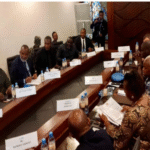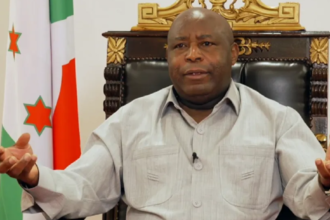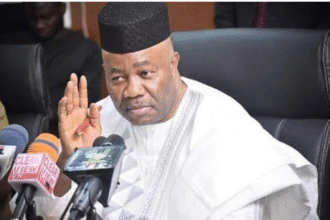By Abu Hassan
Abuja, Nigeria – A call for prayer from Nigeria’s Ministry of Agriculture, intended to help alleviate the country’s escalating food shortages, has been met with widespread disbelief and criticism. An internal memo, reportedly originating from the ministry’s HR department, urged staff to participate in a solemn prayer session and fasting for the next three Mondays, igniting a firestorm of debate about the government’s approach to the ongoing food crisis.
The request comes at a time when Nigeria is grappling with its worst economic crisis in a generation, with at least 4.4 million people reportedly suffering from food insecurity, according to UN estimates. Soaring food prices were a key driver behind nationwide cost-of-living protests last year, with staples like yams quadrupling in price.
The government’s call for divine intervention has been interpreted by many as a sign of desperation and a shirking of responsibility. Critics argue that practical solutions, not prayer, are needed to address the complex problems plaguing the agricultural sector and driving up food costs. Online reactions have ranged from sarcastic proposals to replace ministry officials with religious leaders, to outright declarations that “Nigeria is a joke.”
In response to the uproar, the Ministry of Agriculture issued a press release on Saturday, attempting to downplay the significance of the prayer request. The ministry stated that the call for prayer was not an official policy to combat food insecurity, but rather an initiative intended to boost staff wellbeing.
The press release drew parallels between the prayer sessions and existing wellness programs, stating the prayer was “just as the already existing monthly aerobic exercise and establishment of the gymnasium in the ministry are for physical fitness, and as the regular medical check-ups of staff are for their health.”
Despite the ministry’s attempts to clarify the situation, many remain unconvinced. “While prayer can offer comfort and hope,” said one commentator on social media, “it cannot replace concrete action. The government needs to focus on implementing effective policies that support farmers, improve infrastructure, and stabilize the economy.”
Government officials insist they are taking steps to address the crisis, including providing farmers with over 1,000 tractors and more than two million bags of fertilizer. However, critics argue that these measures are insufficient to tackle the scale of the problem.
The controversy surrounding the prayer request highlights the growing frustration and distrust among Nigerians regarding the government’s handling of the economic crisis and the escalating food shortages. As prices continue to rise and food insecurity worsens, the pressure is mounting on the government to implement effective and sustainable solutions to ensure food security for all Nigerians.









